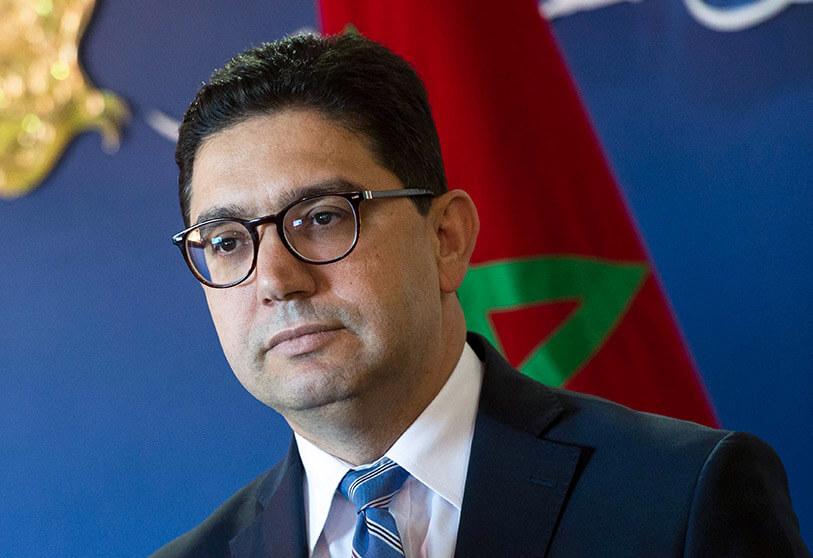On Monday, October 21, Moroccan Foreign Minister Nasser Bourita provided a clear response to the proposal made by Staffan de Mistura, the UN Secretary-General’s personal envoy for the Sahara, regarding the potential “partition” of the Moroccan Sahara. During a press conference in Rabat alongside his Estonian counterpart, Margus Tsahkna, Bourita confirmed the report by Reuters that de Mistura had suggested this partition plan during his visit in April. The Moroccan government immediately rejected the idea, reaffirming its unwavering stance on the issue.
A firm and categorical refusal
Bourita labeled the proposal as “reheated” and reiterated Morocco’s position, as dictated by King Mohammed VI during a similar suggestion made by James Baker in 2002, which was initiated by Algeria. Bourita stressed, “Morocco does not negotiate its Sahara, does not compromise its sovereignty, and does not discuss its territorial integrity.” He framed the discussion as a regional conflict with a neighboring country disputing Moroccan sovereignty, but firmly stated that Morocco’s sovereignty has never been and will never be open for negotiation.
The Moroccan delegation rejected the proposal outright, informing de Mistura that such ideas could not be entertained. Bourita added, “The idea of partition is fundamentally against the core principles of the Moroccan state and its people, who view the Sahara as an inseparable part of the nation.”
Algeria’s role in the shadows
Bourita also criticized de Mistura for lacking transparency, questioning the origins of the proposal. He asked, “Who suggested this idea to him? Who encouraged him to present it in the form he did in April? Was this his own initiative or that of other parties?” Bourita hinted at Algeria’s involvement, implying that de Mistura’s proposition might have been influenced by parties outside the UN’s neutral mediation role.
Morocco’s autonomy plan: A non-negotiable foundation
In response to de Mistura’s claim that it was “time for Morocco to make this effort,” Bourita reaffirmed Morocco’s Autonomy Plan as the only viable solution. He reiterated key principles of the initiative:
- The Autonomy Plan is an endpoint, not a starting point.
- The plan enjoys consistent international support, rooted in the dynamic initiated by King Mohammed VI.
- The plan is based on firm principles and “red lines” that cannot be crossed, including the Moroccan identity of the Sahara.
Bourita emphasized that if other parties show a genuine commitment to the Autonomy Plan as the sole basis for negotiations, Morocco is ready to discuss certain aspects in detail. However, without serious engagement from the other parties, these matters are not on the table.
A dead-end proposal
Concluding his remarks, Bourita characterized de Mistura’s proposal as a “stillborn” idea, doomed to failure from the outset. He also pointed out that de Mistura’s suggestion compromised the UN’s neutrality by advancing a concept rooted in Algeria’s position, a country that claims to be neutral in the conflict.
For Morocco, the idea of partition is a non-starter, and the nation remains committed to its sovereignty and territorial integrity, with the Autonomy Plan as the sole framework for resolving the conflict.
